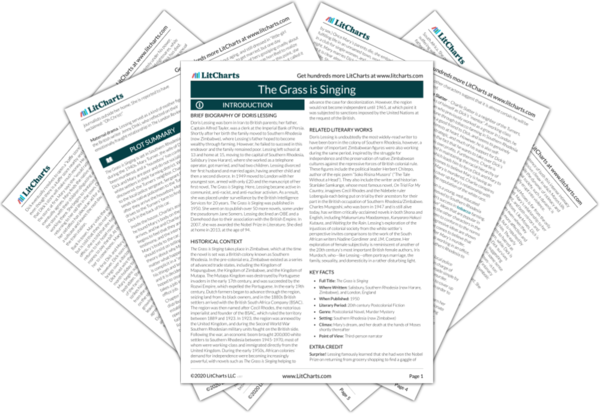Tobacco is the most profitable crop in Southern Rhodesia; after the Second World War, a tobacco boom left many white tobacco farmers (such as Charlie Slatter) suddenly very rich. In this sense, tobacco symbolizes the fulfillment of the colonial goal. Through the exploitation of indigenous land, resources, and labor, white farmers were able to make far more money in the colonies than would ever have been possible back in England.
Dick’s resistance to growing tobacco then emphasizes the fact that, unlike Charlie or even Mary, he is a poor decision-maker not cut out for the life of a farmer. Furthermore, tobacco is an especially significant crop in the context of the global legacy of imperialism. Whereas livestock, maize, and cotton are used for necessary purposes (such as eating and staying warm), tobacco is a superfluous (and of course highly poisonous) product. The period in which Dick begins chain-smoking cigarettes coincides with the rapid deterioration of his mental well-being and physical health. Not only does nobody need to smoke cigarettes, tobacco is a major global health hazard. Tobacco thus symbolizes the needless, meaningless destruction caused by colonialism and capitalism. Dick frames his resistance to growing tobacco by calling it an “inhuman crop.” Indeed, it is arguably Dick’s moral nature that prevents him from growing rich off tobacco like the other farmers around him. However, his moral principles do not stop him from smoking tobacco and thereby jeopardizing his health. People’s relationship to tobacco takes one of two forms in the novel; they either get rich from it or suffer because of it. This unjust dichotomy therefore mirrors the injustice of capitalist colonialism itself.








